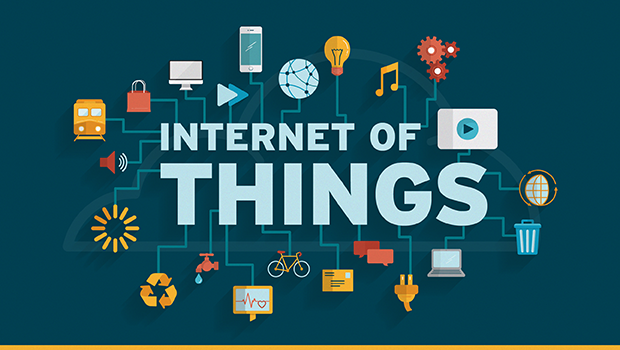AIM Uncovered
Exploring the latest insights and trends in technology and innovation.
Connected Chaos: How IoT is Turning Everyday Life Upside Down
Discover how IoT is revolutionizing daily life, creating chaos and convenience in ways you never imagined. Dive into the connected future now!
Understanding the Internet of Things: How Connected Devices are Reshaping Daily Life
The Internet of Things (IoT) refers to the network of interconnected devices that communicate and exchange data over the Internet, fundamentally transforming how we engage with technology. From smart home appliances to wearable fitness trackers, these connected devices are streamlining tasks and enhancing our daily routines. According to a report by Statista, the number of IoT connected devices worldwide is projected to reach over 30 billion by 2025, highlighting the rapid growth and adoption of this technology. With devices becoming increasingly intelligent, the IoT is not only making our lives more convenient but also enabling smarter cities, improving energy efficiency, and fostering advancements in healthcare.
One of the most significant impacts of the Internet of Things is its ability to gather and analyze vast amounts of data, which can then be used to make informed decisions. For example, in homes equipped with smart thermostats, users can monitor energy consumption and adjust settings remotely via their smartphones, leading to cost savings and reduced environmental impact. Additionally, businesses harness the power of IoT for predictive maintenance and operational efficiency, as explained by IBM. As we continue to embrace a world where everything is interconnected, understanding the implications of the IoT on our daily lives becomes essential for leveraging its potential and adapting to the changes it brings.

The Dark Side of IoT: Privacy Risks in Our Hyper-Connected World
The Internet of Things (IoT) has revolutionized the way we live and interact with technology, but it has also brought significant privacy risks that we must confront. As more devices connect to the internet—from smart refrigerators to wearable health monitors—personal data is continuously collected and transmitted. This interconnectedness creates vulnerabilities, as hackers can exploit these devices to gain unauthorized access to sensitive information. According to a report by Security Magazine, a staggering 70% of IoT devices are vulnerable to attacks, leaving users exposed to potential breaches that can compromise their privacy and security.
Beyond hacking, the mere existence of IoT devices can lead to surveillance in our daily lives. Data collected by smart devices is often shared with third parties for marketing or analytics purposes, often without the user's explicit consent. In fact, a study by Electronic Frontier Foundation highlights that many consumers are unaware of how much data is being collected and sold. This lack of transparency raises ethical concerns about surveillance capitalism and the extent to which our privacy can be compromised in an ever-more connected world. To mitigate these risks, it is essential for consumers to be aware of the privacy policies associated with their devices and to take proactive steps to protect their personal data.
Is Your Home Smart Enough? Exploring the Benefits and Challenges of IoT in Everyday Living
In today's fast-paced world, the concept of a smart home has transcended from a futuristic ideal to a practical reality. By integrating Internet of Things (IoT) devices, homeowners can enhance their living spaces, making them more energy-efficient and convenient. From smart thermostats that optimize heating and cooling to voice-activated assistants that control lighting and appliances, the possibilities are endless. For instance, a smart thermostat can not only adjust temperatures based on your schedule but also reduce energy bills by learning your habits over time. However, while the benefits are significant, it is crucial to consider the challenges that come with such technology.
Embracing IoT in everyday living does not come without its challenges. The reliance on interconnected devices raises serious concerns about security and privacy. With numerous devices constantly sharing data, homeowners are at risk of potential cyberattacks. A well-documented case is the 2016 Mirai botnet attack, which exploited the security vulnerabilities of IoT devices. To truly enjoy the conveniences of a smart home, it is essential to not only invest in high-quality technology but also prioritize robust security measures to protect your personal information.